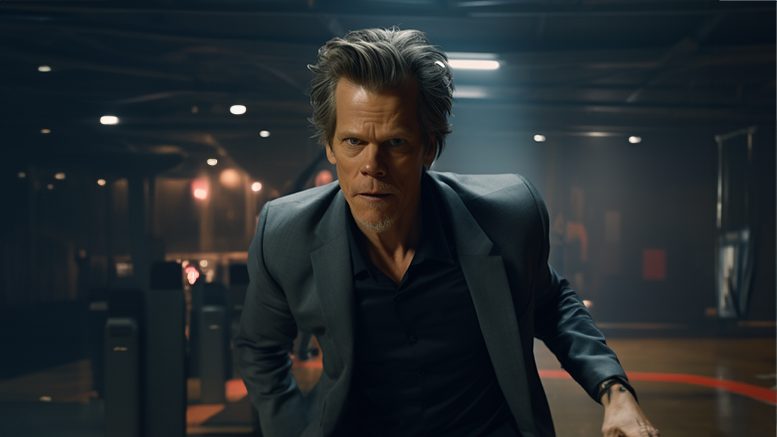HOLLYWOOD, CA — In an unexpected twist of cinematic analysis, a relatively unknown director named Alex Filmore recently stunned film buffs and literary enthusiasts alike when he unveiled a bold new interpretation of the 1984 classic “Footloose.” According to Filmore, the seemingly light-hearted dance film actually contains hidden parallels to George Orwell’s dystopian masterpiece, “1984.”
In a press conference that left reporters baffled, Filmore explained his theory with a fervor usually reserved for established directors. “At first glance, you might think ‘Footloose’ is just a feel-good story about a small-town teenager who loves to dance,” Filmore began, “but dig deeper, my friends, and you’ll find a scathing critique of oppressive totalitarianism lurking beneath those dance moves.”
Filmore’s interpretation hinges on the character of Ren McCormack, played by a young Kevin Bacon, who arrives in the town of Bomont, a place where dancing is strictly prohibited. According to Filmore, Bomont is a microcosm of George Orwell’s nightmarish vision of a world where Big Brother watches your every move. “Think about it,” he exclaimed, “in Bomont, they have a repressive town council led by a preacher who bans dancing. In ‘1984,’ they have the Thought Police, led by Big Brother, who ban independent thought. Coincidence? I think not.”
The director went on to dissect various scenes from “Footloose” with the precision of a surgeon. “When Ren first arrives in Bomont, he’s treated like an outsider, just like Winston Smith in ‘1984.’ They both challenge the status quo and seek freedom.”
But Filmore’s insights didn’t stop there. He delved into the symbolism of dance itself. “Dancing in ‘Footloose’ is an act of rebellion, much like Winston Smith’s secret diary in ‘1984.’ It’s a way of expressing individuality in the face of a suffocating regime. And just like Winston, Ren pays a heavy price for his rebellion, facing ostracization and even violence.”
As the press conference continued, Filmore drew parallels between other characters, such as Ariel Moore and Julia from “1984,” both of whom challenge societal norms in their own ways. He even suggested that the character of Chuck Cranston, the film’s antagonist, represents the faceless enforcers of totalitarianism.
Critics in attendance were initially skeptical, with one journalist asking, “Are you sure you’re not reading too much into a dance movie?” Filmore responded with characteristic confidence, “The best art always has layers, my friend. ‘Footloose’ is no different. It’s a dance of rebellion against oppression, just like Orwell’s ‘1984.’”
While the world awaits a broader reception of Alex Filmore’s “Footloose” theory, one thing is certain: he has once again managed to turn a seemingly straightforward story into a complex narrative filled with hidden depths. Whether audiences will embrace this new interpretation or see it as a director’s quirky obsession remains to be seen. But one thing is certain, from now on, when you watch “Footloose,” you’ll never look at Kevin Bacon’s dancing the same way again.

